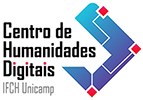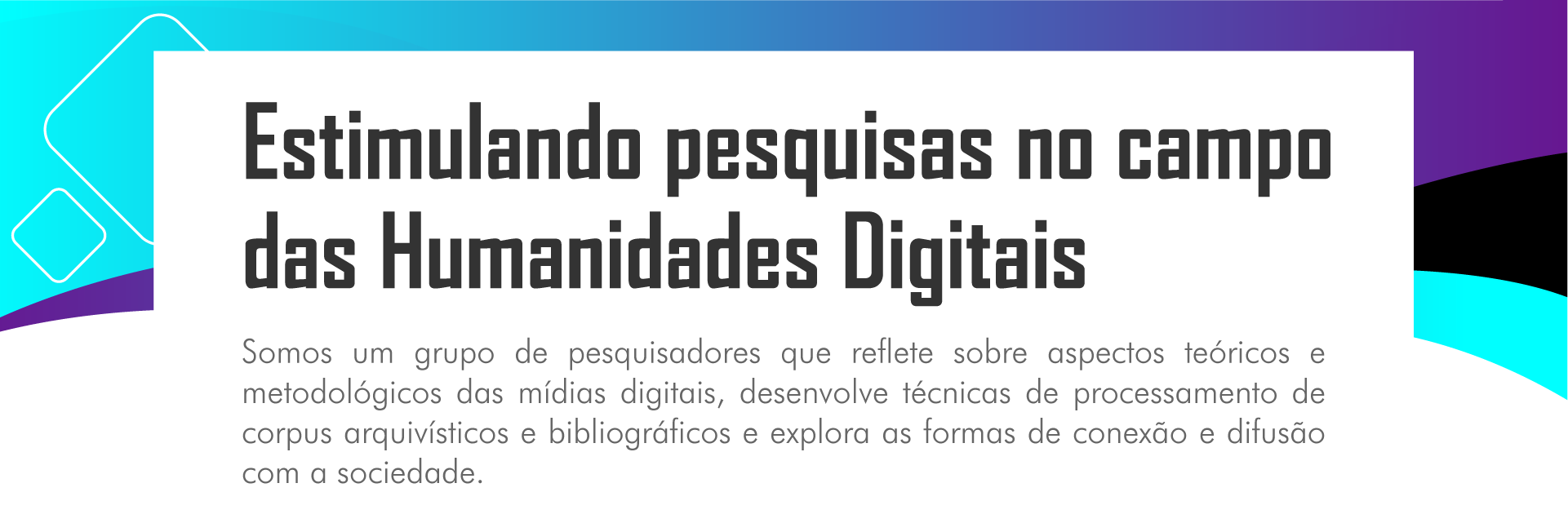The Center of Digital Humanities (CHD) of the Institute of Philosophy and Human Sciences (IFCH) of the State University of Campinas (Unicamp), has the goal of fostering research on digital humanities, especially those with inter-disciplinary character. As part of its purpose, it seeks to empirically reflect on theoretical and methodological aspects of digital media and archiving, to develop techniques to process archival and bibliographical corpus, and to explore means of connection and communication with society. CHD’s main premise is the understanding that technology is more than just data; it is a complex social construction that could be included in the history of technique and modernity. Accordingly, social media should be studied and criticized in their historicity and complexity.
CHD has an interface with the CNPq [Brazilian National Research Council] Research Group “Digital Memory: Archive and Historical Document in the Contemporary World”, which started in 2020 in IFCH-Unicamp, more precisely in the Department of History. Under the leadership of Thiago Lima Nicodemo, with Pedro Telles da Silveira as vice-leader, the group comprises two lines of research: “Technology, archive, and document: COVID-19 and other memories” and “Theory and method in Digital Humanities”. In total, it counts on 20 members, among which 15 are researchers, 3 are students, and 2 are foreigner collaborators.
In addition to the individual research initiatives of members, CHD has been working on specific projects. The line “Techniques of historical evidence: disputes of memory, heritage, and technological construction of historical clues”, led by Pedro Telles da Silveira, inquiries about the place of evidence within the digital environmental. If history has always been associated with vision, what happens now that not only humans but also machines can see? Another line of research, coordinated by professor Aldair Rodrigues, focuses on the collection and disclosure of information regarding the enslaved population that lived in Minas Gerais in the 18th century. It dialogues with national and international efforts interested in the creation of databases about the African diaspora. A third line of research concentrates on the creation and mapping of a digital collection regarding a network of Americanist intellectuals, based on the application and development of research tools and several journals and collections from the first half of the 20th century. Yet another project has been investigating the professional practice of historians in the contemporary world. Based on interviews with different professionals, this project seeks to understand the work places, promises, and challenges of the professional insertion in an increasingly digital world.
Other lines of research, on the other hand, intend to study forms of digital archiving from the experience of COVID-19 pandemic. Investigative efforts are designed in order to understand the archiving process of the COVID-19 memory at the national level, from interviews with the main organizers of digital archives related to the pandemic in Brazil. This discussion is also extended to the global level by mapping and comparing COVID-19 archiving initiatives around the world. This way, one may consolidate theoretical and methodological impressions on digital archives and on the historical writing of the novel coronavirus worldwide.

